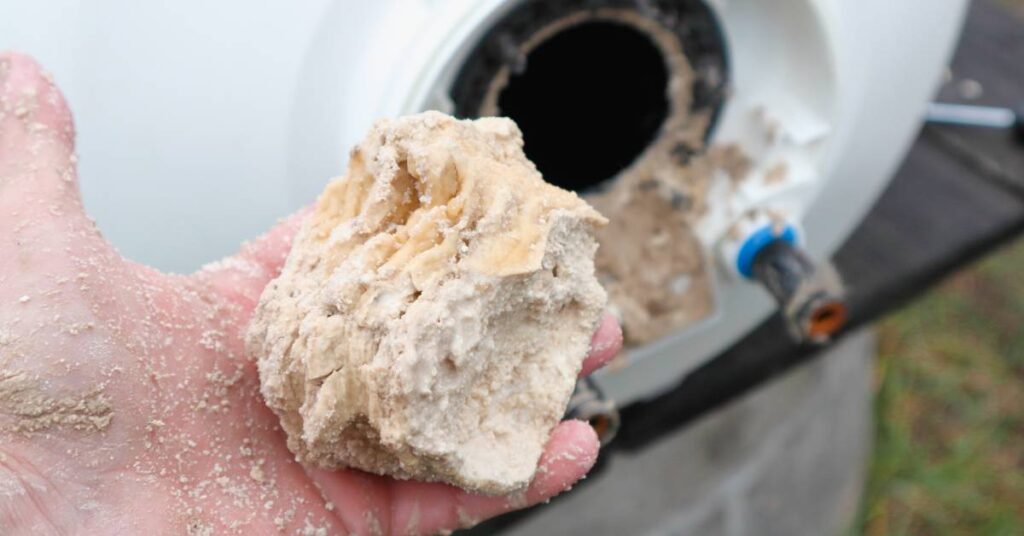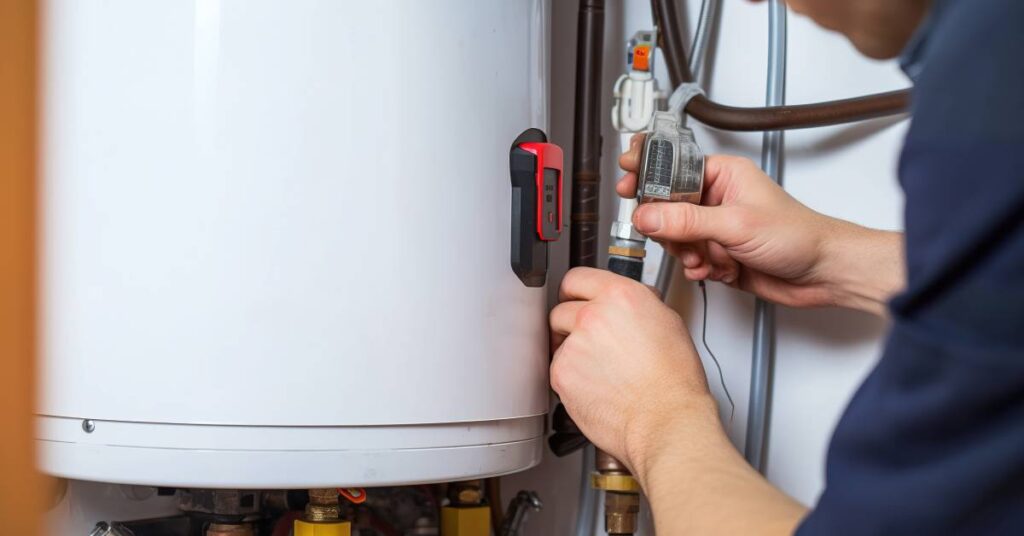
Hard water is a common issue that many homeowners face. It occurs when water contains high concentrations of minerals such as calcium and magnesium. It may not harm your health, but hard water can significantly affect various appliances in your home, particularly your water heater. Discover the effects of hard water on your water heater, why it matters, and how you can address the issue.
What Is Hard Water?
As water moves through soil and rock, it picks up calcium and magnesium ions. Therefore, it contains these minerals by the time it reaches your home.
Why Hard Water Matters
Over time, the minerals in hard water can cause various problems in your home. Water heaters, in particular, are vulnerable to the following:
- Damage from mineral buildup
- Decreased efficiency
- Reduced lifespan
Addressing issues caused by hard water can significantly enhance your home’s water system and ensure smoother operation of appliances.
Mineral Buildup in Water Heaters
A significant issue that hard water creates for water heaters is mineral buildup inside the tank. The heat that your water heater generates causes the calcium and magnesium in the water to precipitate and form solid deposits. Over time, these minerals create a layer of sediment when they settle at the tank’s bottom.
This layer can act as an insulator, making itdifficult for the heating element to warm the water.As a result:
- Your water heater’s internal components work harderthan they did before;
- Your system consumesmore energy to provide the same amount of hot water; and
- Theadditional strain on thesystem leads to higher utility bills.
A heavily coated heating element becomes less effective over time, directly affecting the system’s performance. Periodically draining and flushing the tank can reduce these sediment deposits and mitigate some of the damage caused by hard water.
Impact on Energy Efficiency

The presence of hard water directly affects your water heater’s energy efficiency. When mineral deposits form on the heating element and on the tank’s inner walls, the appliance requires additional energy to heat the water to the desired temperature.
The problem often starts small but worsens with time if left unchecked. For instance, a thin layer of sediment might initially go unnoticed, but it can eventually reduce the heating element’s ability to functioncorrectly. This leads to the water heater running for extended periods, causing unnecessary wear and tear.
Newer, energy-efficient water heaters are not immune to the effects of hard water, either.Manufacturers designthese devices for optimal performance, but hard water can still significantly hinder their functionality. Regular maintenance and water treatment options such as water softeners can improve efficiency and save you money in the long term.
Reduced Lifespan of Water Heaters
The strain that hard water causes doesn’t just affect performance; it can also reduce your water heater’s overall lifespan. The sediment and scale buildup gradually corrode the inner parts of the tank and heating element, leading to faster deterioration.
When hard water is a consistent issue, leaks and cracks in the water heater tank can also occur. Layers of scale can create uneven pressure on the tank walls, weakening its structure over time. Eventually, theseminor vulnerabilities can lead to leaking and even tank failure.
Replacing a water heater prematurely due to hard water damage can be a significant expense for homeowners. With proper water treatment and regular maintenance, you can extend the service life of your water heater and avoid unexpected repair or replacement costs.
Effects on Tankless Water Heaters
Tankless water heaters are often considered more efficient alternatives to traditional water heaters. Compared to tank models, these systems:
- Require less energy to work,
- Don’t run out of hot water,
- Take up less space,
- Have longer lifespans, and
- Require less extensive repairs.
Still, these units rely on small, high-efficiency components that are sensitive to mineral buildup. Once mineral deposits start accumulating inside the system, theycompromise the unit’sefficiency and performance.
Concerns for Components in Tankless Systems
One area of concern with tankless systems is the heat exchanger. Mineral deposits can quickly clog the narrow pathways in the heat exchanger, causing blockages that reduce water flow and heating capacity. Unlike with traditional water heaters, in which sediment largely settles at the bottom of the tank, hard water can affect the entire internal system of a tankless unit.
Taking Care of Tankless Water Heaters
Tankless water heaters require special attention when hard water is present. To protect these sensitive units and keep them functioning efficiently in the long term,consider taking the following maintenance actions:
- Installing a pre-filtration system or water softener
- Performing descaling procedures regularly
- Calling on professional water heater repair and replacement services
Rely on Professionals for Repairs
Consulting professionals is crucial because you can prevent suboptimal water heater performance from worsening by promptly enlisting expert repairs and replacement services. Whether you’re receiving no hot water, lukewarm water, water that’s too hot, or water with too low pressure, contact skilled, trained technicians at a reliable water heater repair service such as Oasis Heating, A/C & Refrigeration. Our experts will complete the following troubleshooting to handle common issues with tankless water heaters:
- Check the circuit breakers to see if any have tripped
- Repair or replace heat exchangers impaired by sediment blockages
- Install a second tankless water heater to prevent strain on the water heater’s heat exchanger
- Repair or replace broken temperature sensors
Solutions To Manage Hard Water

The impact of hard water on water heaters can be significant, but there are solutions that homeowners can implement to minimize the effects.
Water Softeners
Water softeners are effective formanaging hard water problems. These devices remove magnesium and calcium ions from the water supply, preventing them from damaging appliances.
Tank Flushing and Desalination
Another preventive measure involves flushing the tank annually, or more frequently in areas with extremely hard water.This can reduce sediment buildup and enhance the unit’s performance. Tankless water heaters require regular desalination to prevent clogging and maintain proper water flow.
Water Filtering and Descaling
Additionally,you can install inline filters and descalers as part of your plumbing system to reduce the effects of hard water before it reaches your water heater. These devices are particularly effective for homes in regions where hard water is a persistent issue.
Protecting Your Appliance
Understanding the effects of hard water on your water heater is necessary for maintaining its functionality, efficiency, and longevity. Mineral buildup, reduced energy efficiency, and potential damage can all add to maintenance costs and disrupt the convenience of having hot water on demand.
Understanding the effects of hard water on your water heater and taking proactive steps to address the issue can optimize overall performance for years to come.


![([site_name)]](/assets/templates/main/images/footer-logo.png)



